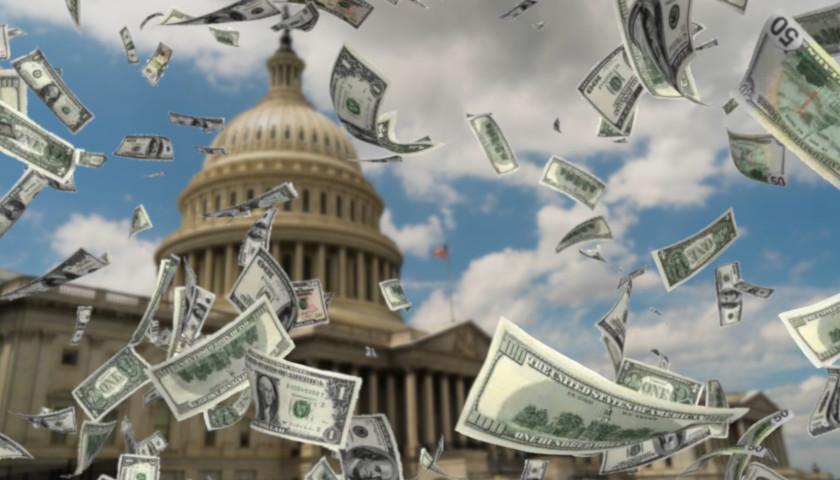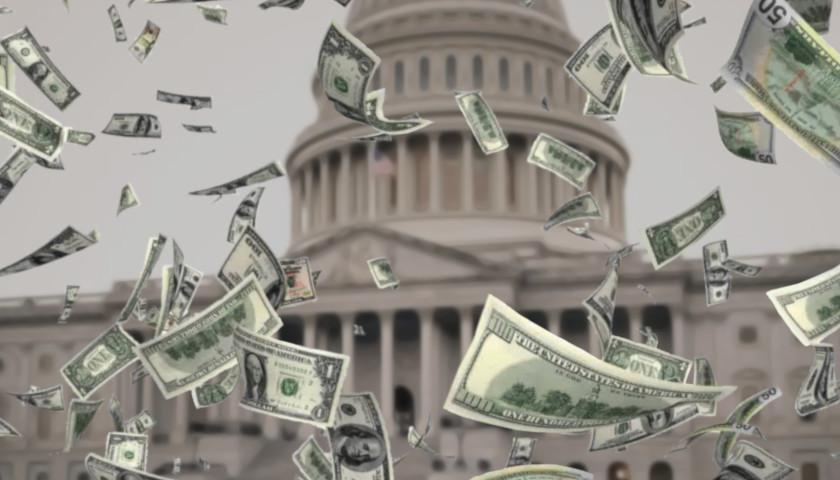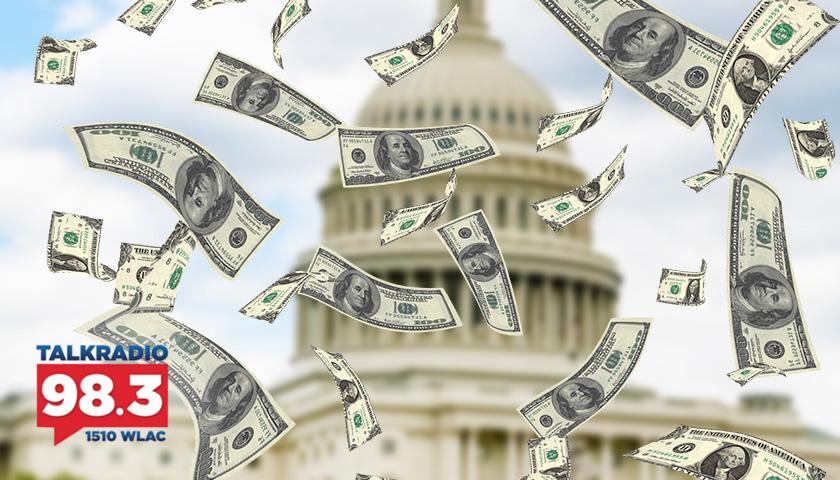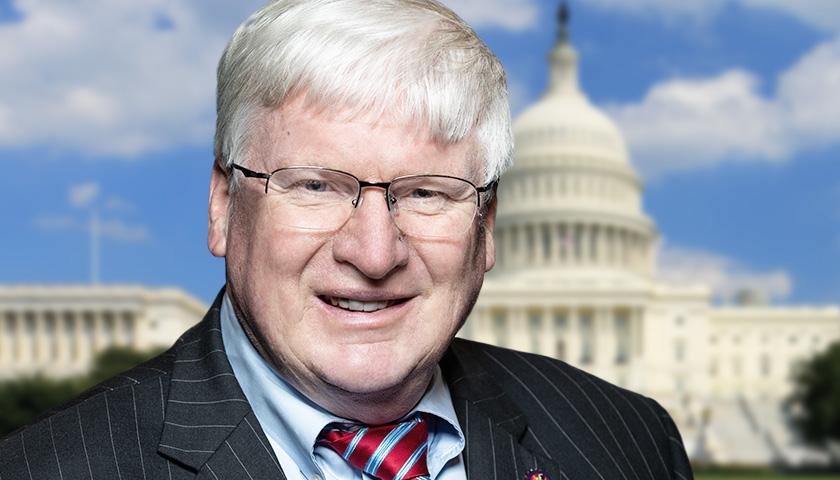by Casey Harper
One of the top international credit rating agencies has downgraded the United States government’s credit rating from the highest level of AAA down one tier to AA+, a serious economic signpost as U.S. debt continues to soar and deficits remain elevated.
Fitch Ratings made the decision, pointing to the U.S. government’s high national debt and deficits as well as an “erosion of governance.”
“The rating downgrade of the United States reflects the expected fiscal deterioration over the next three years, a high and growing general government debt burden, and the erosion of governance relative to ‘A.A.’ and ‘AAA’ rated peers over the last two decades that has manifested in repeated debt limit standoffs and last-minute resolutions,” Fitch said in its announcement.
Fitch is considered one of the top three rating agencies in the world, along with Moody’s and Standard & Poor’s, the latter of which sparked economic concerns when it downgraded the U.S. government in the same fashion in 2011.
In particular, Fitch took issue with the increasingly worse debt-to-GDP ratio. As The Center Square previously reported, the U.S. Congressional Budget Office released a report earlier this year projecting the national debt will be nearly twice as large as the U.S. economy in 30 years.
“By the end of 2023, federal debt held by the public equals 98 percent of GDP,” the CBO report said. “Debt then rises in relation to GDP: It surpasses its historical high in 2029, when it reaches 107 percent of GDP, and climbs to 181 percent of GDP by 2053.”
In July, the U.S. Treasury reported a $1.4 trillion deficit nine months into fiscal year 2023, with borrowing totaling more than $5 billion per day.
CBO data also show that interest payments on the national debt are on track to become the biggest expense for the U.S. government.
Fitch pointed to the near-shutdowns because of gridlock in Congress, the soaring spending over the last decade and Congress’ failure to address looming financial challenges like entitlement spending.
“In Fitch’s view, there has been a steady deterioration in standards of governance over the last 20 years, including on fiscal and debt matters, notwithstanding the June bipartisan agreement to suspend the debt limit until January 2025,” Fitch said. “The repeated debt-limit political standoffs and last-minute resolutions have eroded confidence in fiscal management. In addition, the government lacks a medium-term fiscal framework, unlike most peers, and has a complex budgeting process.”
Maya MacGuineas, president of the Committee for a Responsible Federal Budget, called the news a “wake-up call.”
“The United States economy remains strong, but we are on an unsustainable trajectory,” MacGuineas said in a statement after the news broke. “As Fitch points out, our national debt is high, deficits are rising rapidly, interest costs are consuming an increasing share of revenue, and we have numerous major fiscal challenges on the horizon. We also came far too close to default during the last debt limit debate.
The CRFB has reported that the trust funds for Medicare, Social Security and highways face insolvency within the next decade.
“As Fitch points out, our national debt is high, deficits are rising rapidly, interest costs are consuming an increasing share of revenue, and we have numerous major fiscal challenges on the horizon,” MacGuineas said. “We also came far too close to default during the last debt limit debate.”
– – –
Casey Harper is a Senior Reporter for the Washington, D.C. Bureau of The Center Square. He previously worked for The Daily Caller, The Hill, and Sinclair Broadcast Group. A graduate of Hillsdale College, Casey’s work has also appeared in Fox News, Fox Business, and USA Today.








